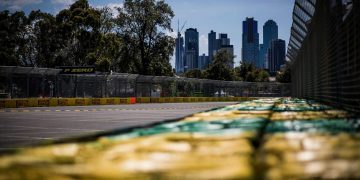Formula One came within hours of kicking off its 2020 World Championship before the late cancellation of the Australian Grand Prix. The sport is now looking down the barrel of a very long wait before racing can resume.
Currently, the first eight Grands Prix of the year have been postponed, while both the Australia and Monaco races have been cancelled indefinitely.
The earliest the season can resume is the Canadian Grand Prix which is slated for June 14. However, even that race seems unlikely to go ahead as planned such is the unabating state of the Covid-19 pandemic.
So how many races does F1 need to officially complete a World Championship?
The current sporting regulations stipulate that the minimum number of events needed for a season is eight.
However, the regulations also specify that a full championship season “must include Competitions taking place on at least three continents during the same season.”
Consequently, F1 cannot restrict the season solely to Europe, where most teams are based, to limit mass international travel.
Silverstone’s managing director Stuart Pingle has already said he would welcome more than one Grand Prix to be staged at the venue to assist F1 in completing a 2020 championship season. However, the sport will still be required to have races in either North America, South America, Asia or Australia to classify a full season.
Ferrari team principal Mattia Binotto has also recently confirmed that serious consideration is being given to have a 2020 ‘superseason’ which will see the championship run over until January of next year.
Teams have already agreed to give the FIA full control to reschedule races and propose a revised 2020 calendar.
Meanwhile, the regulation overhaul set for 2021 has been postponed until 2022 to allow teams to continue with their 2020 cars into next season, reducing the costs ahead of the anticipated economic crisis of the covid-19 pandemic.
Races in Canada, France and Britain are set to decide on the running of their races within the next month.
















